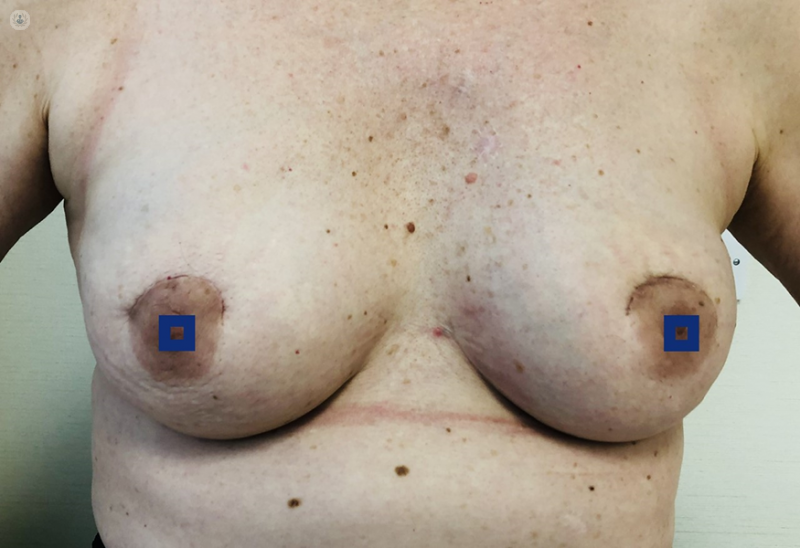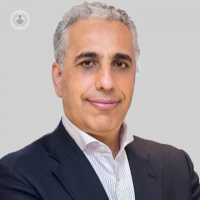Reducing the risk of breast cancer
Written by:By now you should know that breast cancer is one of the most common forms of cancer in the UK. Although breast cancer survival rate is improving, it’s important to implement a range of lifestyle habits to prevent it.
Luckily, extremely experienced Professor Kefah Mokbel, spoke to us about how breast cancer can be prevented. He is one of the UK’s leading oncoplastic breast surgeons.

How can breast cancer be prevented?
The risk of developing breast cancer can be reduced with a range of measures:
- Avoid becoming overweight after the menopause.
- Take vitamin D3 supplements or expose your skin to adequate sunshine
- Undertake regular exercise/physical activity. One hour per week should be sufficient.
- Avoid excessive alcohol intake, try not to drink more than 6 units of alcohol per week.
- Reduce the intake of red meat and animal fat (esp. overcooked red meat).
- Eat more fish.
- Replace low-fat dairy products with full-fat dairy products.
- Increase the intake of vegetables and fresh fruits especially: raspberries, cranberries, red grapes, cherries, and pomegranates. These fruits can be taken as fresh juice drinks with no added artificial ingredients (e.g. fresh smoothies).
- Increase the amount of green tea you consume.
- Increase the amount of olive oil you have.
- Add turmeric, red chilies and black pepper to diet
- Consider taking Omega3, vitamin B6 and lactobacillus acidophilus supplements
It's worth mentioning that there is no credible scientific evidence that low-fat dairy products or underarm cosmetics increase the risk of developing breast cancer. Soya products appear to be neutral i.e. they cause neither benefit nor harm when it comes to breast cancer.
Hormonal
Use the safest preparations or alternatives to HRT and avoid taking HRT after the menopause.
Try to have your child before the age of 30 years and avoid pregnancy after the age of 40 years.
Other ways (for women at high risk)
Anti-oestrogen drugs, such as tamoxifen and raloxifene (used to prevent osteoporosis in post-menopausal women) can reduce the risk of breast cancer by 50–75% in women at above average risk. Tamoxifen can be taken at a low dose like 5 mg for prevention with minimal side effects.
Preventative mastectomy seems to reduce the risk of breast cancer by 90% in high-risk women, for example, in those who carry breast cancer genes such as BRCAI, BRCA2 and PALB2. Figure 1 demonstrates the outcome of double mastectomy and reconstruction using implants in a BRCA 2 gene carrier performed by Professor Kefah Mokbel.

Oophorectomy also decreases the risk of developing breast cancer in those who are BRCA-1 and BRCA-2 gene carriers in addition to reducing the risk of ovarian cancer.
Recent research suggests that aspirin-like drugs, metformin and statins may reduce the risk of developing breast cancer. However, further research is needed to confirm that these drugs can be recommended for breast cancer prevention.
Drugs that inhibit oestrogen production by peripheral tissue known as aromatase inhibitors have also been found to be better than tamoxifen in preventing breast cancer is the opposite breast among postmenopausal women who have breast cancer. However, further research is needed.
What's the purpose of a breast screening?
Breast screening is used to try and detect breast cancer at an early stage in women who appear well and who may not have any symptoms. The earlier it is detected, the more likely it is to be treatable.
What are some of the available screening methods available?
Screening methods include:
- 3D digital mammography and/or ultrasound scan
- Magnetic resonance imaging (MRI) for high risk patients
If you feel you require screening or you would like to prevent breast cancer, you may like to book an appointment with an oncoplastic breast surgeon. Visit Professor Kefah Mokbel’s profile today for more information.


